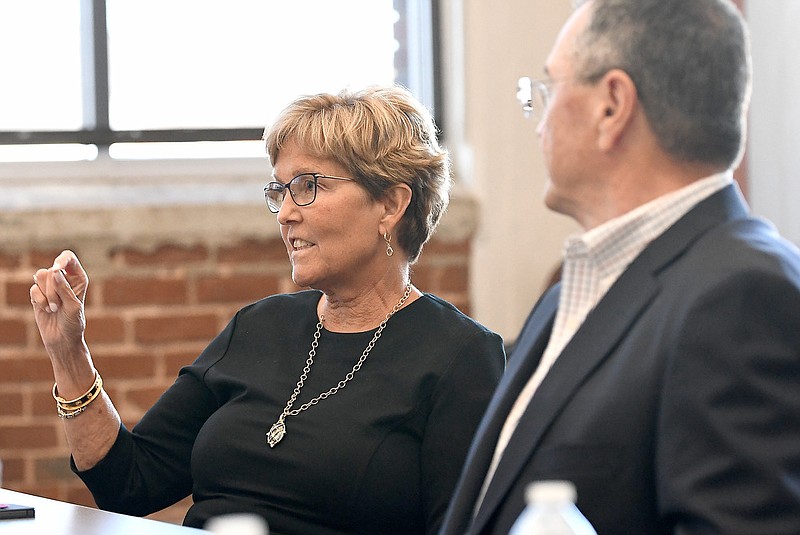Many local leaders call Erlanger Health System Hamilton County's greatest asset, but neither the county nor the city technically own the 131-year-old public hospital - an enterprise that now employs roughly 6,300 people and brings in more than $1 billion of revenue annually.
Earlier this month, Hamilton County and Erlanger officials announced plans to restructure the governmental entity as an independent nonprofit in an effort to level the playing field with the system's private competitors and remain the Chattanooga region's safety net medical provider for decades to come.
The Times Free Press will tackle questions about Erlanger and the significance of the proposed change, starting with, "Who owns Erlanger?"
Erlanger's original board was charged with operating the hospital but had no authority to borrow money, which became problematic for the safety-net hospital expected to provide health care to area citizens regardless of their ability to pay.
That's why hospital officials campaigned in 1976 to create a hospital authority, a type of governmental entity that would allow Erlanger to pledge authority assets and be responsible for paying the debt, according to Erlanger's website.
That year, a private act was written and passed that established the Chattanooga-Hamilton County Hospital Authority, which today performs the governmental function of operating Erlanger Health System under an 11-member board of trustees.
Six trustees are appointed by the county mayor, four trustees are appointed by Hamilton County's legislative delegation and the chief of Erlanger's medical staff also serves as a trustee.
When the private act passed in 1976, both Hamilton County and the city of Chattanooga owned the real estate and infrastructure along East Third Street comprising Erlanger's main campus, and the new law directed the county and city to transfer that property to the authority.
Attorney Jesse Neil, who represents Erlanger's board, said in an emailed statement the authority now holds the licenses to operate as a hospital, and it owns or controls the land and infrastructure necessary to maintain these licenses and operate as Erlanger Health System.
While there are some joint ventures, leases and affiliates within Erlanger that have separate legal control or ownership, those represent a "very small portion" of Erlanger's land and infrastructure, Neil said.
"Otherwise, the board of trustees for the authority is vested with the full, absolute and complete authority and responsibility for the complete operation, management, conduct and control of the business and affairs of the hospital authority," Neil said.
If at any time the authority "ceases to exist" as the operator of Erlanger Health System, the real estate given to it by the county and city may transfer back to its original owner, Neil said. However, the statute does not define the term or circumstances that would cause the authority to cease existing.
(READ MORE: Erlanger's financial situation attracted unsolicited purchase offer)
Erlanger Board chair Jim Coleman said it's time to reassess Erlanger's structure and governance given the changes in health care that have occurred since the private act passed in 1976.
Like other public health systems in Tennessee, Erlanger gets some supplemental funding from the state and federal governments to help offset the cost of caring for large volumes of uninsured and underinsured patients. But those government funds are not enough to make up for the high cost of providing expensive specialty services to many of the region's sickest and poorest patients.
The city gives no money to Erlanger, and the county budgets $1.5 million for the health system annually.
As the law stands now, Erlanger must conduct its official business during public board meetings. Operating in the public eye makes it hard for Erlanger to get ahead, because competitors can see details about the health system's finances and operations through public meetings and open records, Coleman said.
Becoming independent and private will allow Erlanger to be more strategic and flexible in the market, which could help the hospital be more competitive and stable in the long term, Coleman said.
The health system provided around $150 million worth of uncompensated care last year - a figure that has grown 36% in four years. Erlanger receives roughly $60 million in government funds to offset those costs, which Coleman said leaves Erlanger starting each year $90 million in the hole.
Contact Elizabeth Fite at efite@timesfreepress.com or 423-757-6673. Follow her on Twitter @ecfite.

